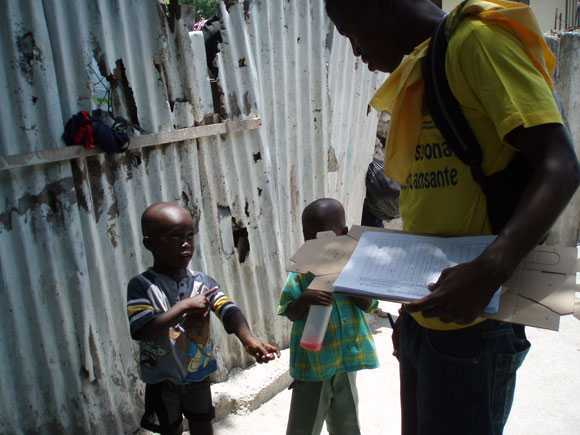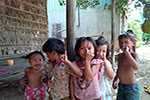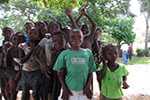Facts about Measles & Rubella
More about Measles, Rubella & Congenital Rubella Syndrome (CRS) Worldwide
Domestic measles, rubella, and CRS have been eliminated in the Western Hemisphere (Americas). We know that it can be done in the rest of the world!
Facts about Measles, Rubella & CRS
- Measles is a highly contagious respiratory disease caused by a virus. It can result in serious health complications, such as pneumonia and encephalitis (swelling of the brain), and even cause death.
- Rubella is a viral infection that affects unvaccinated children and young adults. If an unvaccinated woman gets rubella while pregnant – especially in her first three months – serious consequences can result, including miscarriages, fetal deaths, still births, and having infants born with congenital rubella syndrome (CRS).
- CRS is a group of devastating birth defects that includes blindness, deafness, and heart defects. More than 100,000 children are born every year with CRS, mainly in Africa, South-East Asia, and the Western Pacific.

Thanks to decades of vaccinating children against measles and rubella, the Americas have been free of domestic measles virus since 2002 and free of domestic rubella since 2009.
What do Measles and Rubella have in common?
- While rubella is sometimes referred to as “German measles,” the rubella and measles viruses are unrelated and are from different virus families. However, they do have some similarities. Both viruses:
- are spread from person to person by coughing and sneezing,
- can result in fever and skin rash after infection, and
- survive only in human hosts.
- Measles and rubella can be prevented with vaccines that can be delivered together as a combined measles-rubella (MR) vaccine, or combined with vaccines against mumps (MMR) and varicella (chickenpox) (MMRV).
Eliminating measles & rubella
CDC is the lead scientific partner in the Measles & Rubella Initiative. Our field stories will show how our leadership and partnerships work toward the elimination of measles and rubella.
Less Pain, More Gain: Measles Vaccination Using a Microneedle Patch Holds Great Life-Saving Potential

Measles remains one of the most contagious diseases in the world. Vaccinating children on-time and ensuring that each gets two doses of measles vaccine is critical to eliminating this deadly disease.
Success in Cambodia: The Disappearance of Measles! (With Rubella Not Far Behind)

When something disappears, people tend to panic, except when what has gone missing is a dreaded disease like measles. Cambodia hasn’t reported a single confirmed case of measles since November of 2011, while its neighbors continue to face outbreaks, illness and death from this vaccine-preventable disease.
Global Health Security in Action: Helping Haiti to Prevent, Detect and Respond to Vaccine-Preventable Diseases

Immunization has long been recognized as the first line of defense in an effective approach to public health. It is also one of the most efficient and cost-effective public health interventions in the world and has the potential to have an important and positive impact on global health security.
- Page last reviewed: August 31, 2017
- Page last updated: August 31, 2017
- Content source:
Global Health
Notice: Linking to a non-federal site does not constitute an endorsement by HHS, CDC or any of its employees of the sponsors or the information and products presented on the site.


 ShareCompartir
ShareCompartir
